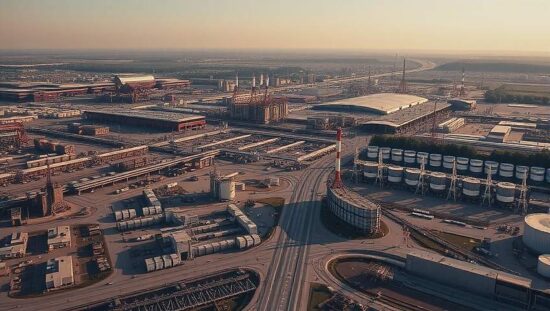The German Federal Ministry for Digital and Transport (BMDV) has announced a significant injection of funding, approximately €157 million, to bolster the German Aerospace Center’s (DLR) development of climate-friendly fuels. This commitment secures the operational phase of the Power-to-Liquid (PtL) fuel technology platform in Leuna until 2035, marking a potentially pivotal, yet complex, step towards decarbonizing the transportation sector.
Federal Minister for Digital and Transport, Patrick Schnieder (CDU), hailed the initiative as a “major step” toward sustainable fuels, emphasizing the creation of what he describes as the “world’s first fully integrated research facility” within Leuna. This facility will focus on optimizing electrically-produced fuels and refining production processes scalable to industrial levels, bridging the critical gap between laboratory experimentation and real-world application.
While the announcement has been met with cautious optimism, the core strategy of power-to-liquid fuel production faces inherent challenges that critics are keen to highlight. The efficiency of converting electricity to liquid fuels-particularly when factoring in the energy required for hydrogen production and subsequent synthesis-remains a crucial obstacle. Currently, the process is energy-intensive and reliant on renewable electricity sources to genuinely reduce carbon emissions. Without a dramatic increase in renewable energy capacity and improvements in PtL efficiency, the environmental benefits of this technology risk being diminished.
The funding process itself reveals a phased approach. DLR was competitively selected in 2023 to plan the facility, receiving initial funding of €5.48 million. Further investment of €130 million followed in 2024 for construction. The subsequent €157 million commitment now guarantees research and testing operations from 2028 to 2035.
However, the decision to prioritize PtL fuels sparks questions regarding the strategic allocation of resources. Some transport experts argue that a greater emphasis should be placed on direct electrification through battery electric vehicles and hydrogen fuel cell technology, which they contend offers a more efficient and sustainable pathway to decarbonization. The long-term viability of PtL fuels hinges on aggressive technological advancements and a consistent, policy-driven push towards renewable energy dominance – factors outside the direct control of the Leuna facility. The investment, therefore, represents both opportunity and a considerable bet on the future of electric fuel technology, one that demands constant scrutiny and evaluation to ensure genuine environmental progress.





